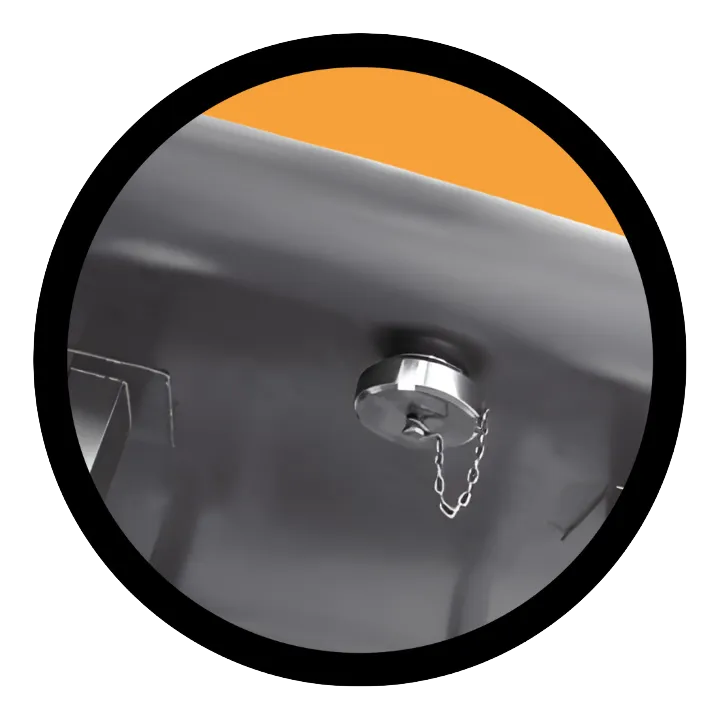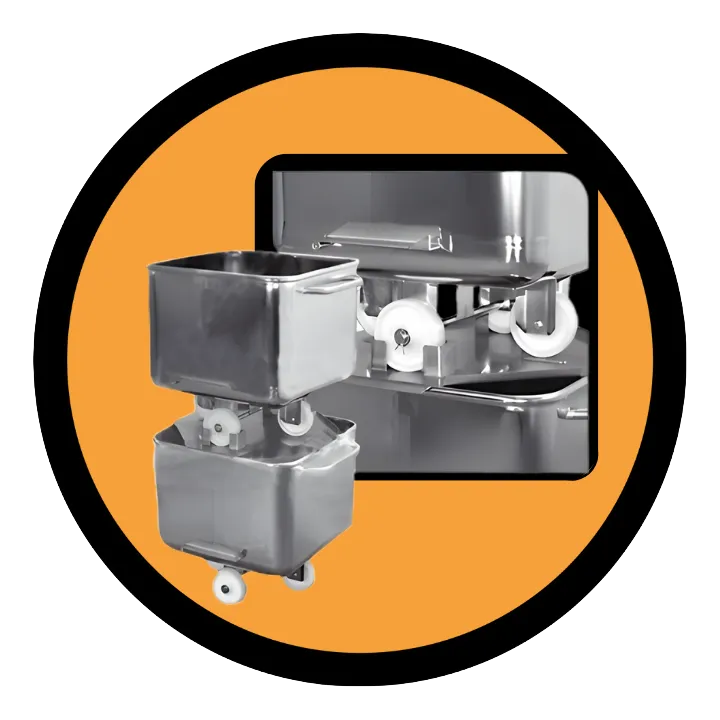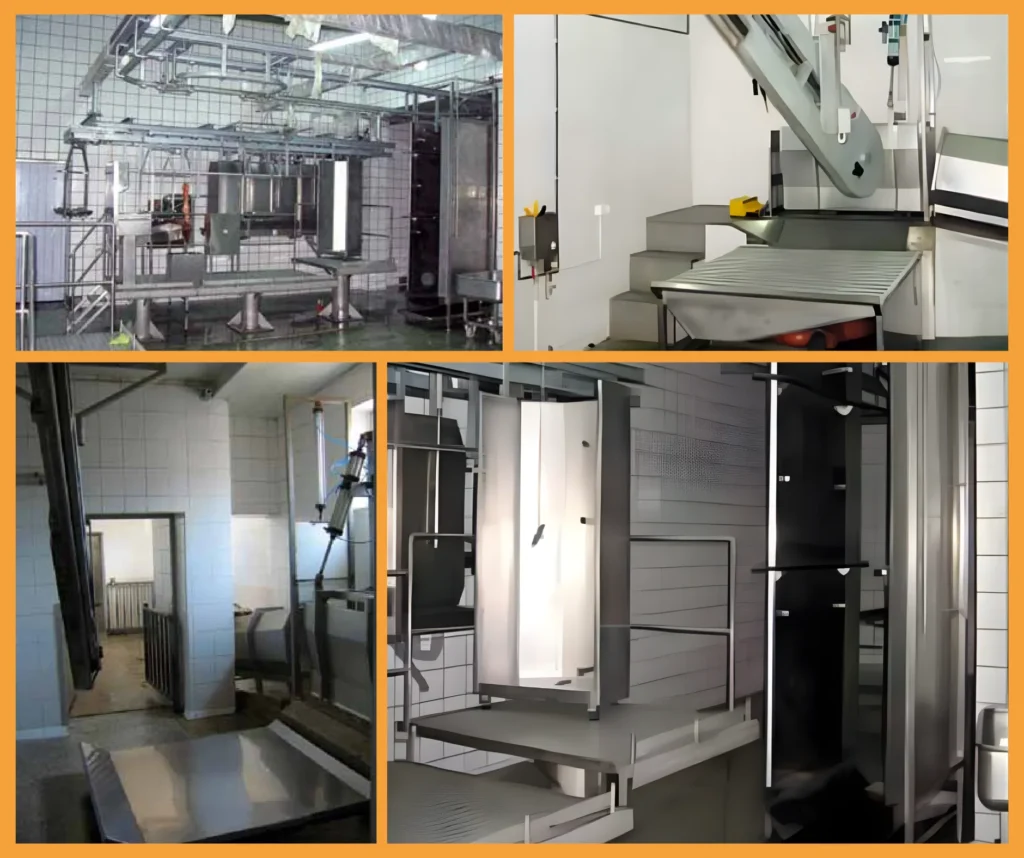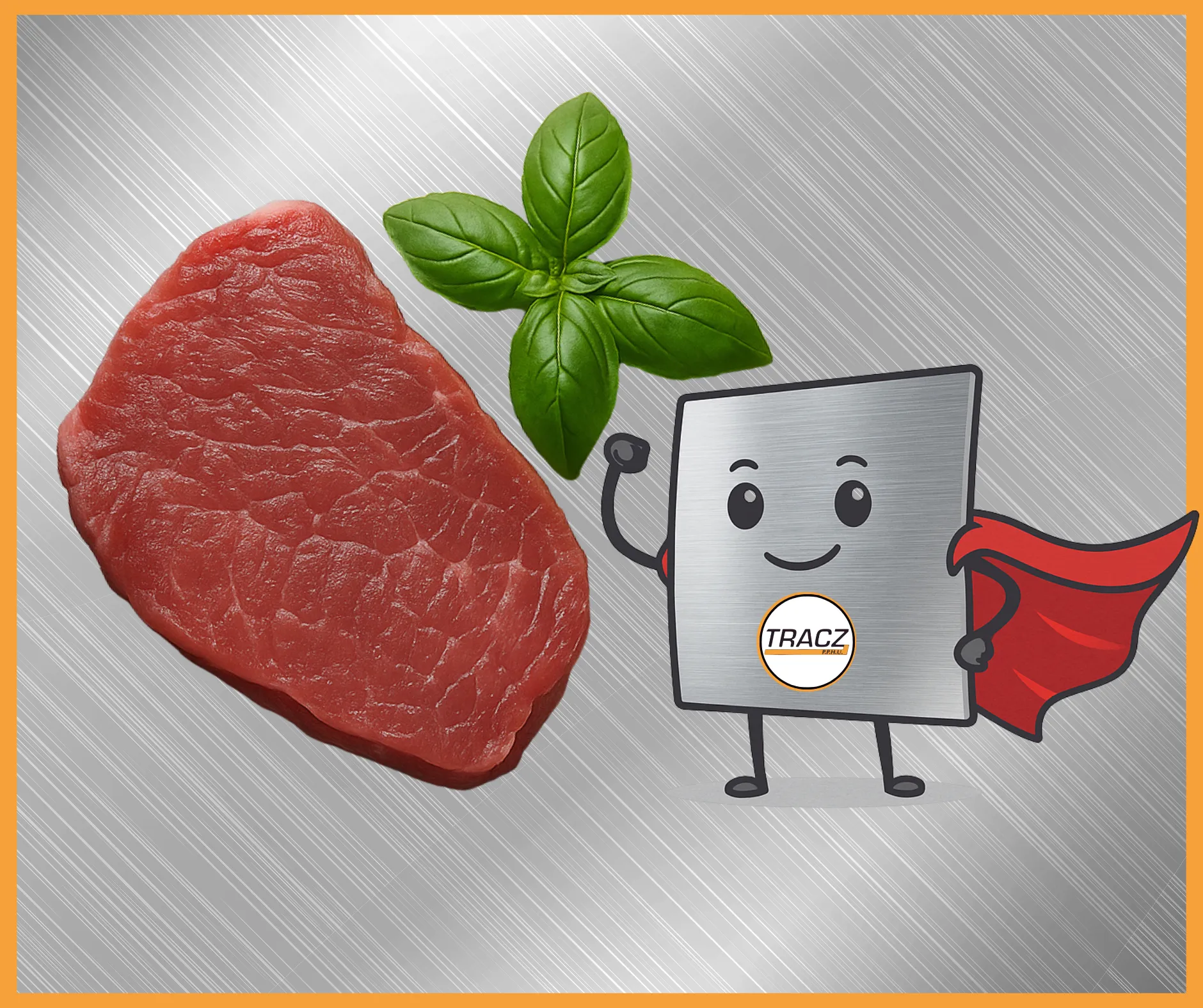
In the dynamic and rapidly evolving food industry, where safety, hygiene, and durability are absolute priorities, the choice of appropriate materials is crucial. There is perhaps no other raw material that so reliably meets these stringent requirements as stainless steel. It has become synonymous with safety and a standard in processing plants, restaurants, and butcheries worldwide. At PPHU Tracz, for over 35 years, we have been supplying top-quality stainless steel solutions, perfectly understanding why this material is indispensable in the food sector.
Maintaining stainless steel hygiene for optimal protection
One of the most important reasons why stainless steel dominates the food industry is its exceptional hygienic properties. The smooth, non-porous surface of stainless steel makes it incredibly resistant to the adhesion of food residues and the growth of bacteria, fungi, and other microorganisms. This minimizes the risk of product contamination, which is absolutely critical for consumer health and the reputation of any company.
The ease of cleaning and disinfection is another invaluable advantage. Stainless steel perfectly withstands the action of strong chemical agents and high temperatures used in sterilization processes, without losing its properties or aesthetics. This allows for maintaining the rigorous cleanliness standards required by all sanitary norms, without worrying about surface damage or degradation.
In practice, this means that equipment and accessories made of stainless steel, such as meatbins or work tables, can be quickly and effectively brought to a state of perfect cleanliness after each shift or production batch. This reliability in maintaining hygiene is the foundation of food safety and a guarantee of the continuity of production processes in processing plants.
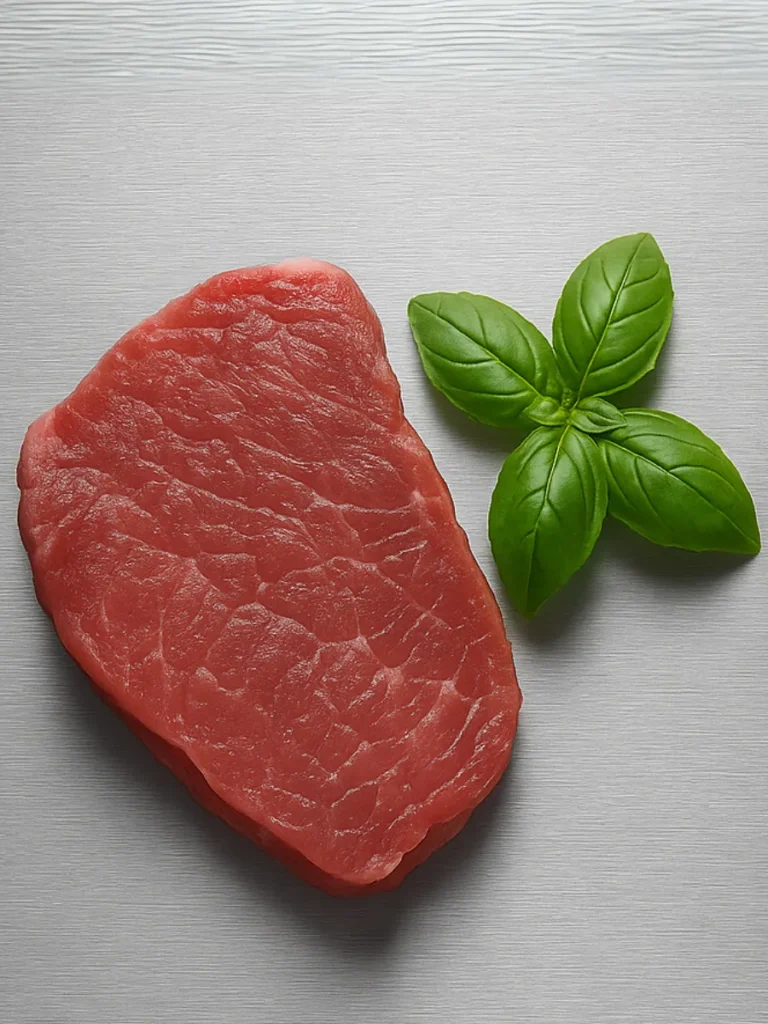
The durability of stainless steel starts with its natural resistance to corrosion
The environment in the food industry is exceptionally demanding for materials – moisture, high and low temperatures, organic acids, salts, and aggressive cleaning agents are factors that quickly degrade other metals. Stainless steel owes its exceptional corrosion resistance to the presence of chromium, which forms a passive chromium oxide layer on its surface. This invisible barrier self-regenerates upon contact with oxygen, protecting the material from rusting.
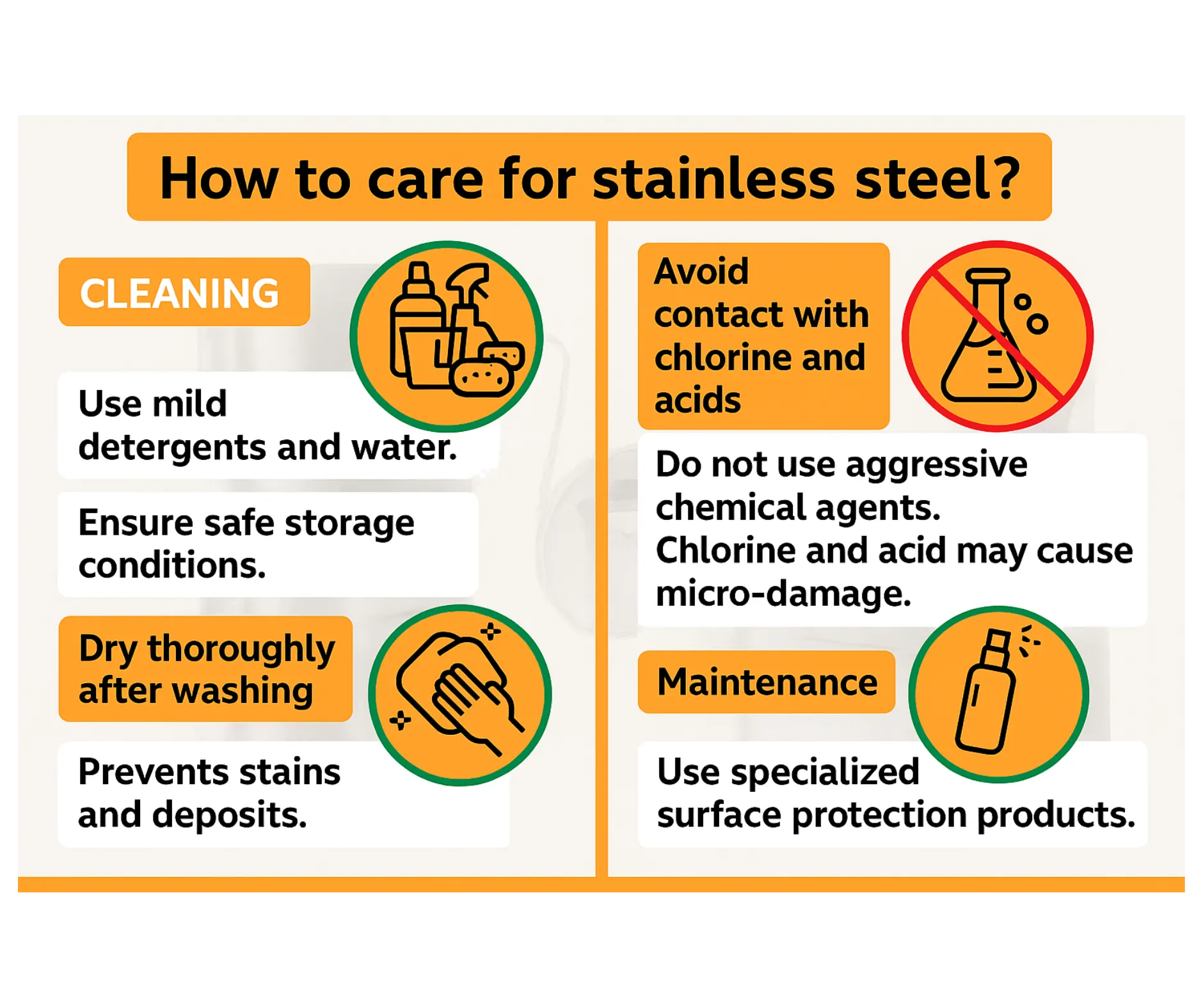
This extraordinary property directly translates into the longevity of investments. Stainless steel equipment and structures, such as smoke trolleys or storage racks, serve for many years, often decades, without signs of wear or the need for replacement. This limits production downtime related to maintenance or repairs, which is crucial for the operational efficiency of any plant.
Long-term corrosion resistance also means lower operating costs in the long run. Investing in solid, stainless equipment is a saving resulting from the lack of need for frequent purchase of new components. This is why manufacturers choose this material – they know it is an economical and reliable choice.
Material Neutrality: Safety for Taste
In the food industry, it is extremely important that materials in contact with food do not negatively affect its properties – taste, smell, color, or nutritional value. Stainless steel is a chemically inert material, which means it does not react with food products, does not release harmful substances, and does not alter their organoleptic characteristics. This guarantees that the quality of the final product will remain intact.
Regardless of whether we are dealing with acidic preserves, salty brines, or fatty meats, stainless steel maintains its integrity and does not enter into undesirable interactions. As a result, consumers receive a product with an unchanged, original taste and aroma, free from metallic aftertaste or other undesirable changes.
This material neutrality is the foundation of consumer trust in food products. In an era of increasing awareness about the composition and origin of food, the choice of materials that in no way affect its quality is not only a technological but also a marketing issue. Stainless steel provides peace of mind for both producers and end consumers.
Industry Regulations: Stainless Steel is the Standard
Stainless steel is not merely a preferred material, but in many cases, it is an outright required material in the food industry. Numerous national and international food safety regulations, such as European Union directives and FDA standards, clearly define the requirements for materials in contact with food. They demand that these surfaces be easy to clean, non-porous, non-toxic, and corrosion-resistant, and stainless steel perfectly meets all these criteria.
Using stainless steel equipment and accessories is a key element in the process of obtaining and maintaining necessary certifications and permits. Companies that invest in this material automatically ensure compliance with applicable regulations, which is essential for legal and safe operation in the food industry.
In practice, this means that stainless steel has become an industry standard, without which it is difficult to imagine a modern food processing plant. It is a material that not only ensures safety and durability but also enables compliance with the most stringent legal requirements and audits, which is indispensable in the global food supply chain.
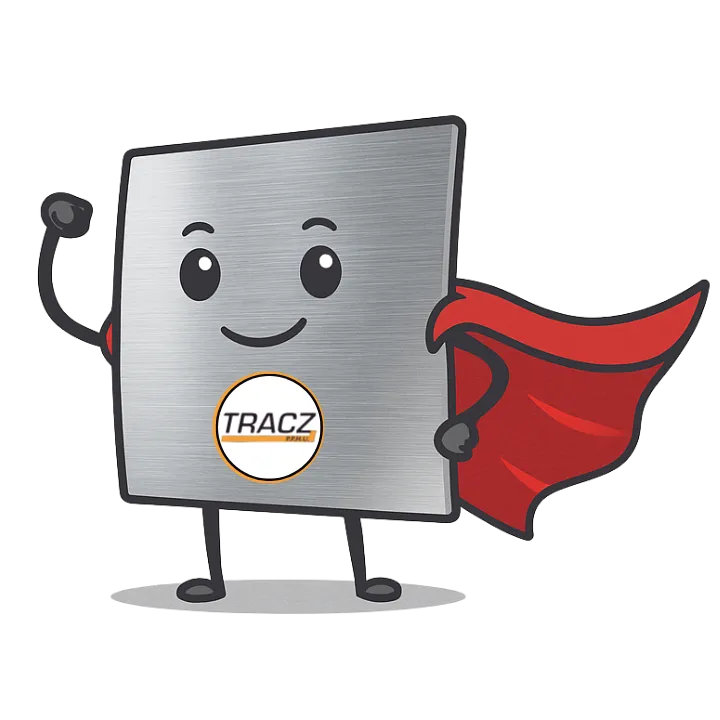
Choosing Tracz: Quality that Meets Expectations
Understanding all these undeniable advantages, it is crucial to choose a partner who not only supplies stainless steel equipment but also guarantees its highest quality of workmanship. PPHU Tracz is a Polish manufacturer with over 35 years of experience (since 1987), specializing in providing stainless steel solutions for the food industry. Our constructions are designed and manufactured with the most demanding conditions in mind.
Our offer includes a wide range of products, from meatbins and smoke trolleys, to working panels, racks and tables, as well as shelves and accessories – all made from certified stainless steel. Additionally all our products are electropolished, that decreases the porosity of steel and bacterial adherence.
Our example products:
We are proud of our solid, refined technologies, which translates into the reliability and longevity of every component, as confirmed by our clients in Poland, Europe, and North America.
At PPHU Tracz, we prioritize quality of workmanship, which goes hand in hand with short order fulfillment times. We understand the specifics of your industry and know how important it is to deliver reliable equipment on time. By choosing Tracz, you choose a partner who guarantees that your investment in stainless steel will serve for years, ensuring hygiene, durability, and full compliance with industry standards.
In summary, stainless steel is much more than just a material; it is a pillar of safety and efficiency in the food industry. Its unparalleled hygiene, exceptional corrosion resistance, chemical neutrality, and compliance with rigorous industry regulations make it indispensable. Choosing this raw material is an investment in the future of your company, guaranteeing the highest production standards. At our company, we are ready to support you in this decision, offering proven and robust stainless steel solutions that will meet, and even exceed, your expectations.



